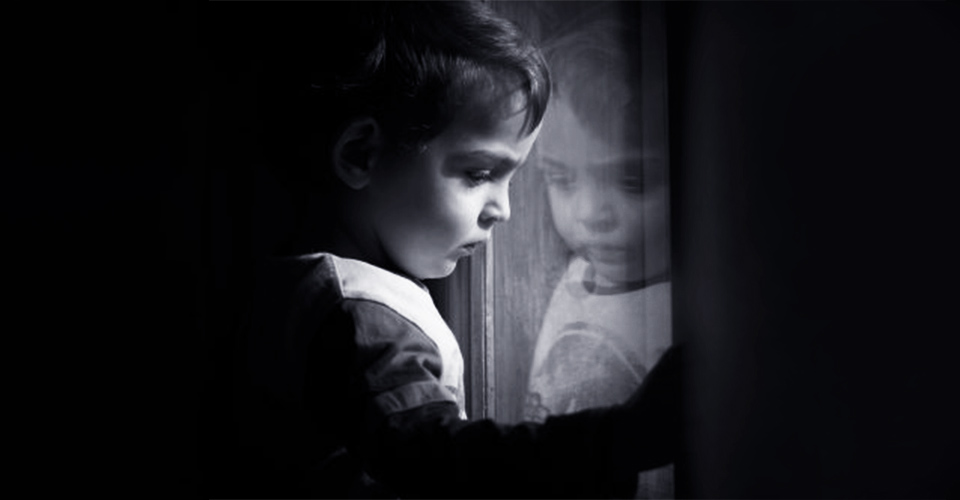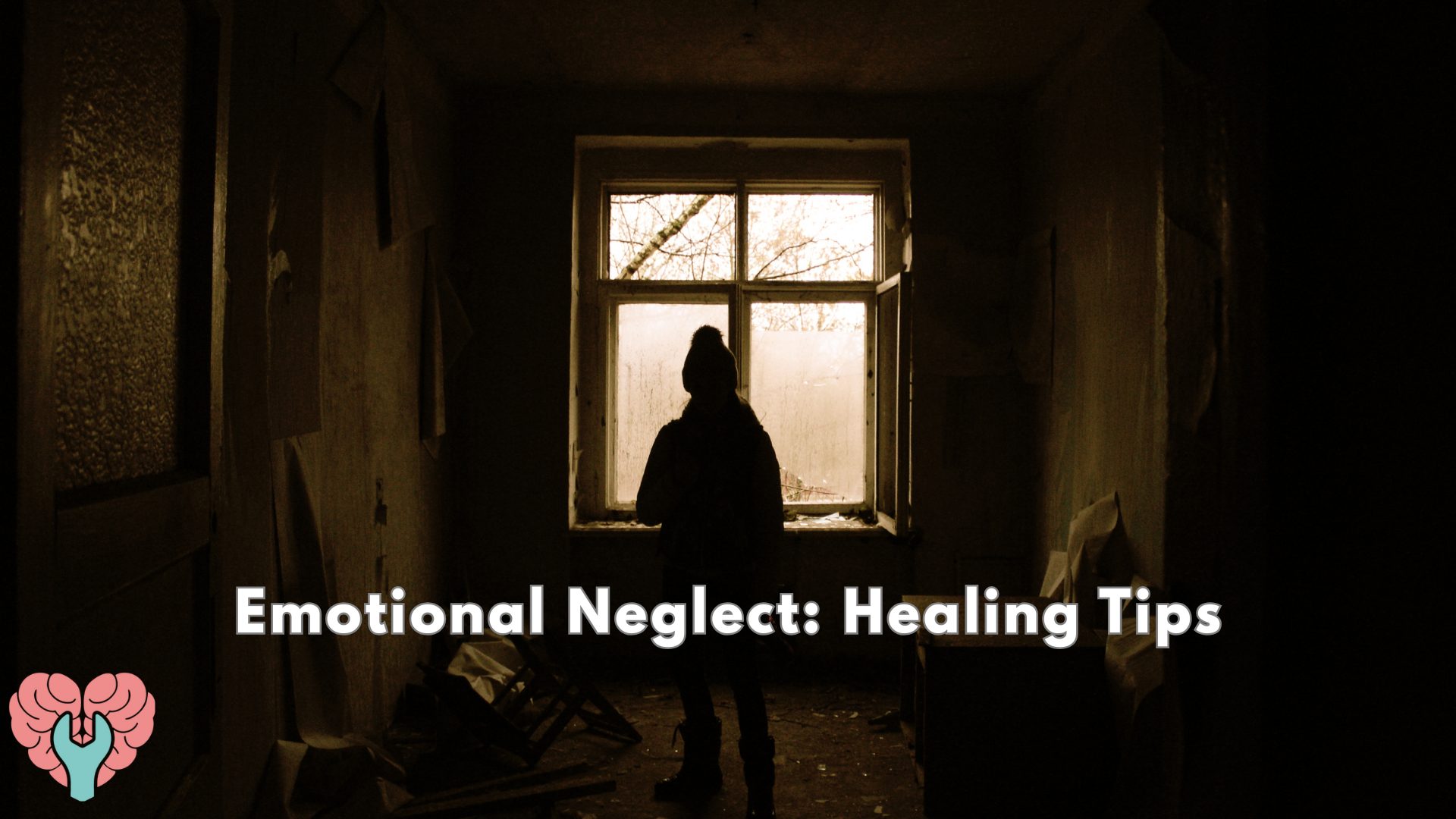Emotional Neglect: Healing Tips
Emotional Neglect: Healing Tips

Written by Jenefa Anthony KB 11780
Understanding the Pain That Wasn’t Loud but Still Lasts.
When people think about childhood trauma, they often imagine shouting, hitting, or other clear forms of mistreatment. Emotional neglect, on the other hand, is quiet. Emotional neglect happens when caregivers fail to give a child the attention, validation, warmth, or connection they need.
Many adults walk into therapy saying things like, “Nothing really bad happened to me,” yet they struggle with deep insecurities, chronic self-doubt, or an aching sense that something is missing. They often don’t realize that their struggles stem not from abuse, but from a wound, the emotional neglect.
Reminder: If you or your loved ones are struggling with mental health issues, please don't hesitate to reach out to us at Soul Mechanics KD or Soul Mechanics Ipoh. Remember, seeking help is not a sign of weakness but strength!
What Is Emotional Neglect?

Emotional neglect happens when caregivers overlook or ignore a child’s emotional needs. It’s not a matter of bad intentions. Often, the parent may have been physically present, but emotionally unavailable, perhaps due to their own struggles, trauma, or lack of emotional skills.
Sometimes, caregivers fail to comfort the child when they’re sad, ignore their accomplishments instead of celebrating them, and dismiss their fears instead of taking them seriously. Over time, they learn to ignore or suppress their feelings because no one else seems to notice or care about them. Psychologists say, “it’s the ‘unseen injury’ – the absence of nurturing that you don’t even know you’re missing.”
“Nothing Really Bad Happened… So Why Do I Feel This Way?”
A frequently asked question is this one. They see nothing "wrong" in the past, like there is no violence, no yelling, no abandonment. Thus, they find it difficult to understand why they feel:
· Unworthy of love or praise
· Emotionally numb or disconnected
· Like a burden when expressing their needs
· Lost in relationships
· Overly independent, but secretly lonely
Children naturally seek and rely on emotional attunement from their caregivers. That means a caregiver who sees, understands, and responds to their feelings. Without that, kids often draw unhealthy conclusions, like:
· “My feelings don’t matter.”
· “I shouldn’t need anything from others.”
· “I’m only lovable when I’m doing everything right.”

These beliefs follow them into adulthood and quietly shape how they relate to themselves and others.
The Long-Term Effects of Emotional Neglect
The effects of emotional neglect aren’t always obvious, but they run deep. Research shows that people who experience emotional neglect in childhood are more likely to struggle with:
Low self-esteem and self-worth
Even when they succeed on the outside, they often feel not good enough because no one ever validated their inner emotional world. Without that validation, they couldn’t build a solid sense of self.
Difficulties with intimacy and trust
If no one was emotionally available to them as children, it’s hard to let someone in now. They might keep emotional distance or choose partners who repeat the same patterns.
Reminder: If you or your loved ones are struggling with relationship or mental health issues, please don't hesitate to reach out to us at Soul Mechanics KD or Soul Mechanics Ipoh. Remember, seeking help is not a sign of weakness but strength!

Emotional suppression or disconnection
Many people struggle to identify or express what they feel. This difficulty, known as alexithymia, is strongly linked to childhood emotional neglect in numerous studies.
Guilt around having needs
As children, no one taught them that having needs is normal and deserving of care. Now, asking for support feels selfish, weak, or even wrong.
Perfectionism or people-pleasing
If they only received love and approval when they performed well, they may now believe they have to constantly achieve or please others to be worthy of love.
These patterns are often mistaken for depression or anxiety on their own. While those conditions might also be present, emotional neglect is often the deeper root, especially when childhood lacked the validation needed for healthy emotional development.
Why Is It So Hard to Recognize?
Because neglect is about absence, it’s hard to remember. There are no dramatic scenes or painful flashbacks. Instead, there’s just a vague emptiness or chronic feeling of disconnection.
Emotional neglect also doesn’t always come from “bad” parents. Caregivers may have provided food, shelter, and education, but not an emotional connection. They may have been loving in their own way, but emotionally limited. That makes it harder for survivors to validate their own pain. Many think, “Others had it worse. I should be grateful.”
But trauma isn’t about comparison. It’s about what your emotional world needed and didn’t get. That’s valid, no matter what anyone else experienced.
Reminder: If you or your loved ones are struggling with mental health issues, please don't hesitate to reach out to us at Soul Mechanics KD or Soul Mechanics Ipoh. Remember, seeking help is not a sign of weakness but strength!
So, How Do You Heal?
Healing from emotional neglect isn’t about blaming your caregivers. It’s about recognizing what you didn’t get, understanding how it affected you, and learning to give yourself now what you were missing then.
Here are the key steps that support healing:
Name It
You can’t heal what you don’t acknowledge. Understanding that emotional neglect was part of your upbringing helps connect the dots between your past and your current struggles.
Start by noticing:
· Do I dismiss my own emotions?
· Do I feel guilty for needing support?
· Do I struggle to connect emotionally in relationships?
The first and vital step towards changing any pattern is recognizing it in the first place.

Validate Your Emotional Needs
One of the biggest lies emotional neglect teaches is that your feelings don’t matter. You can rewrite that. Practice checking in with yourself daily by asking:
· What am I feeling right now?
· What might I need emotionally?
You might be surprised knowing how often you’ve been overlooking yourself. Rebuilding emotional awareness takes time, but it is completely possible.
Build Emotional Vocabulary
If you grew up emotionally neglected, you might not have the language for your inner world. This is common. Tools like the Feelings Wheel can help expand your emotional vocabulary so you can better identify and express what’s going on inside.
Over time, this strengthens your sense of self and allows deeper connections with others.
Set Boundaries Without Guilt

Many people with emotionally neglectful upbringings feel selfish for setting limits. That’s because they were taught to put others first, always.
But boundaries aren’t selfish. They’re essential for mental health and healthy relationships. Practice small ones at first: saying no when you mean it, asking for space, or expressing your preferences.
Create Safe Emotional Connections
Healing often requires re-learning how to connect with others. That may mean seeking out emotionally available friends, partners or building that safety within a therapeutic relationship.
Safe connection doesn’t mean oversharing or relying too quickly. It means feeling seen, heard, and respected, something many emotionally neglected adults never experienced growing up.
You’re Not Broken – You Were Unseen
The truth is, emotional neglect isn’t about what’s wrong with you. It’s about what was missing in your early environment. You were never taught to tune into your emotions or believe they mattered. But you can learn that now.

And the good news is, emotional skills are learnable at any age. Neuroscience shows that the brain remains flexible throughout life. That means healing is possible, not by erasing the past, but by gently filling in what was missing (Siegel, 2012).
So when you hear that voice saying, “Nothing bad happened, I shouldn’t feel this way,” remind yourself: the pain of not being seen is something. Acknowledging it is not self-pity – it is self-respect.
Reminder: If you or your loved ones are struggling with mental health issues, please don't hesitate to reach out to us at Soul Mechanics KD or Soul Mechanics Ipoh. Remember, seeking help is not a sign of weakness but strength!
Final Thoughts
Emotional neglect is real, even if it’s invisible. It’s quiet but powerful. If you’re struggling with feelings of low self-worth, emotional disconnection, or difficulty trusting others, remember, those struggles are valid. You’re not being dramatic. You’re responding to unmet needs that deserve attention.
Healing starts with noticing, then validating, then slowly rewriting the story you were given. You are allowed to feel. You are allowed to need. And you are absolutely allowed to heal.
If you’re looking for a therapist in Kota Damansara or Ipoh area, you can click here for more information.
If you enjoyed reading this, why not broaden the horizon of knowledge by learning about "Emotional numbness"? You can read the blog here.
For more content related to mental health do follow us on our official Instagram.

